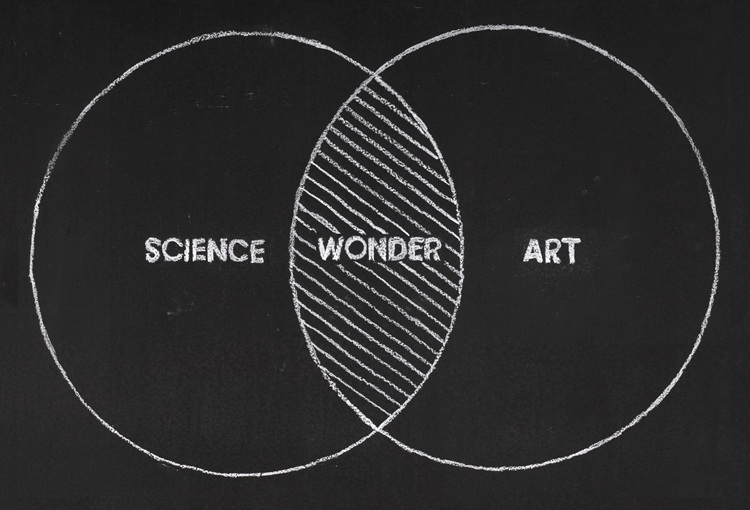 Isn't it interesting how "black and white" science is perceived and how "gray" art is--and the line that distinguishes a border between the two seems to always be solid; it's never dashed. How is it that society really defines science? How does society define art? What about science and art makes them mutually exclusive under so many contexts? And under which contexts do science and art overlap?
Isn't it interesting how "black and white" science is perceived and how "gray" art is--and the line that distinguishes a border between the two seems to always be solid; it's never dashed. How is it that society really defines science? How does society define art? What about science and art makes them mutually exclusive under so many contexts? And under which contexts do science and art overlap?While watching the video (right), a thought occurred to me. I saw a theme I had seen many a time before. The irony lies in the study of science and how it creates art and vice versa. Take a look at the vast array of watercolors. Doesn't it take precision, measurement, and science to come up with specific colors? It's a chemistry, really. It's 2 cups yellow to 1 cup green, yielding the perfect shade of blue. Then, taking a look at the process of watercoloring, the actual manifestation of the chemistry into an image--rather, colors that form a pattern on paper, leading us to cognitively form an association--is an art. As the colors are applied to the page, and as they merge, they form this chaotic mastery of imagination. And this imagination--the product of which is known as art--seems to imply that it has no basis in science. For where in this image, in this painting, is there evidence of scientific process? "2 + 2" doesn't equal "1 eye" and "6 over 3" doesn't equal "1 hair strand."
So, I have a conclusion that gets down to the essence of science and art. Neither science nor art can be objectively defined. Sure, science is black and white. I see black and white when using Pascal's formula or calculating the volume of my can of coconut water. Then, seeing how true these statements are, where does the "gray" in science arise? Well, even science--as black and white as it is--cannot escape the grayness of theory. What one scientist proposes as the empirical understanding of the universe, let's say as e=mc2, can be reinterpreted and reformulated or even expanded upon. In short, it can be edited. And if there is any characteristic that describes art, it would be that art can be edited. Art is all about edits. And so is science.
I would dare to draw a division between these two disciplines.

